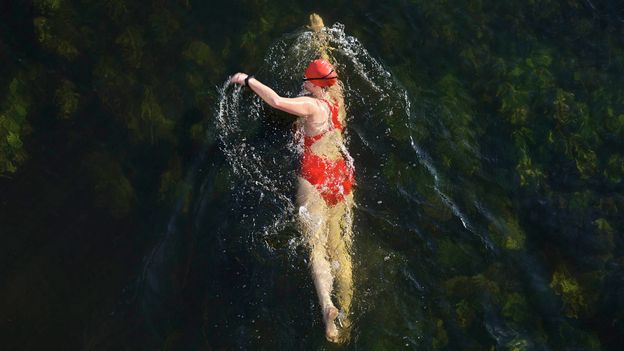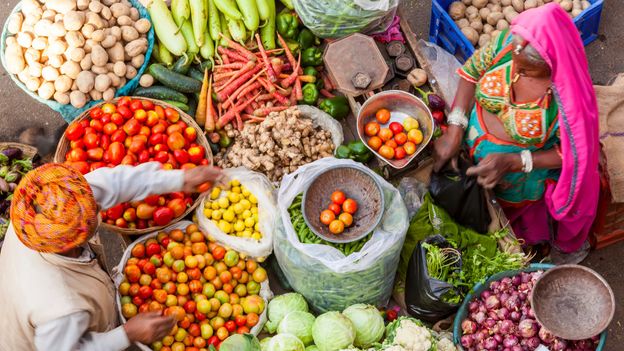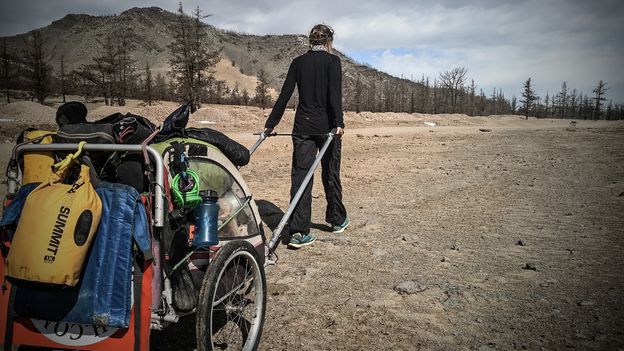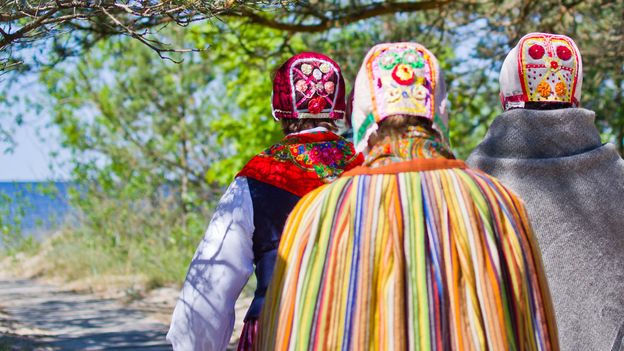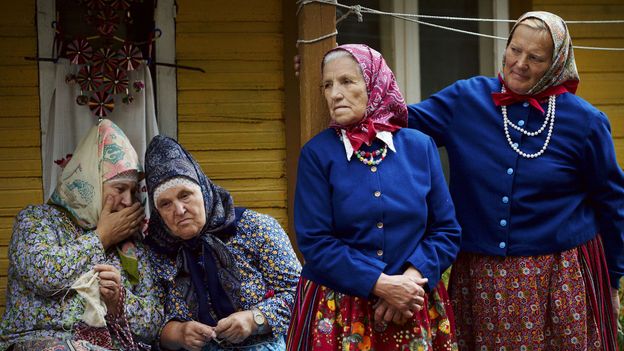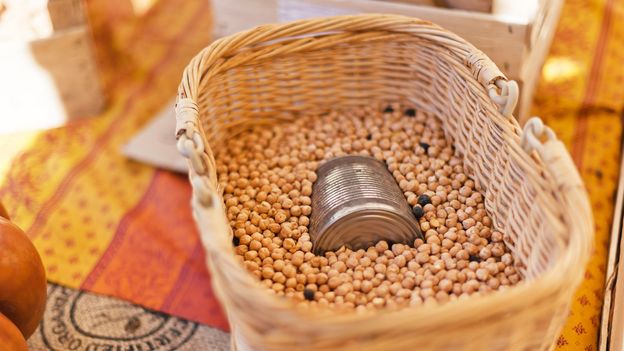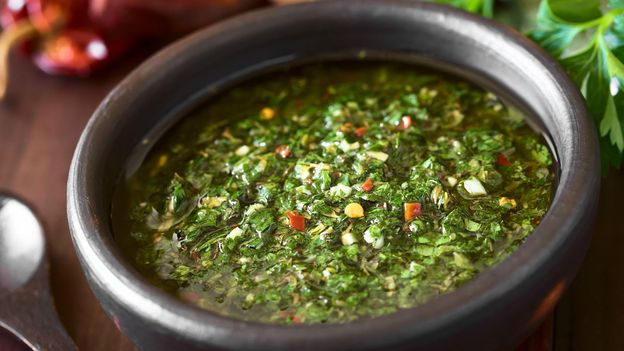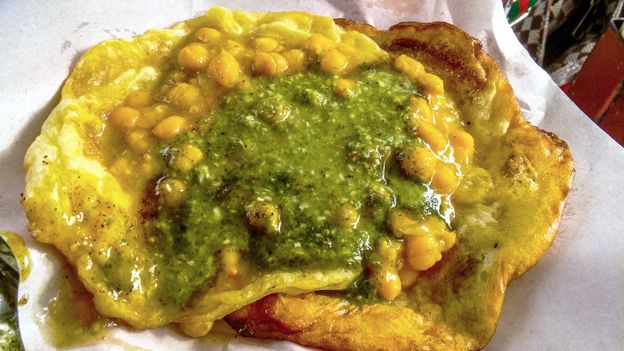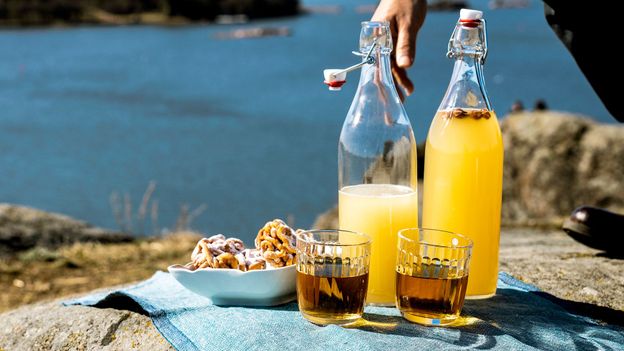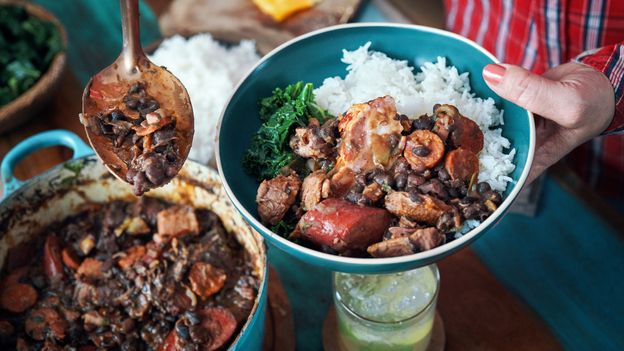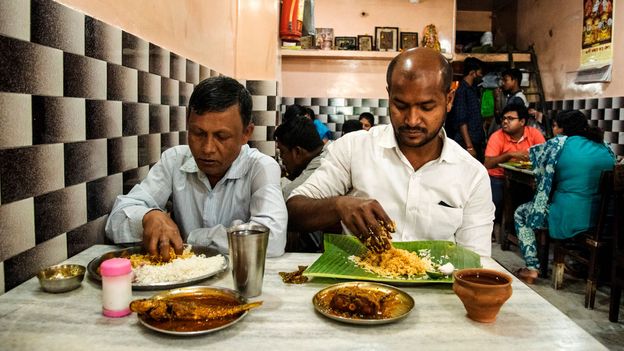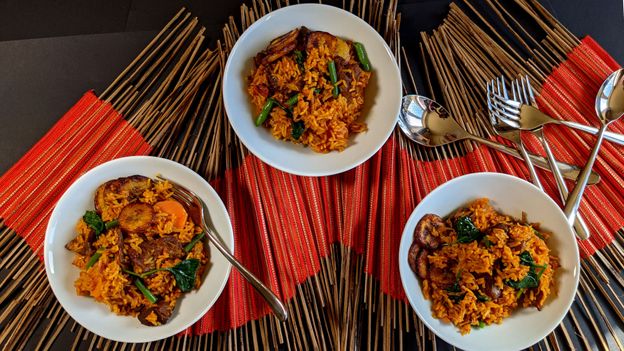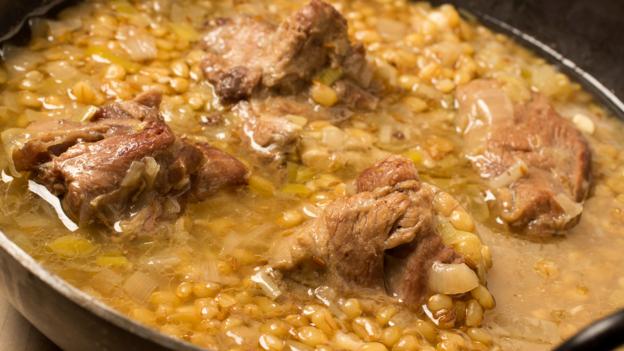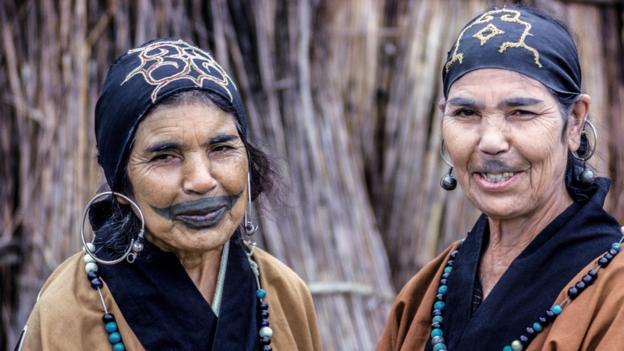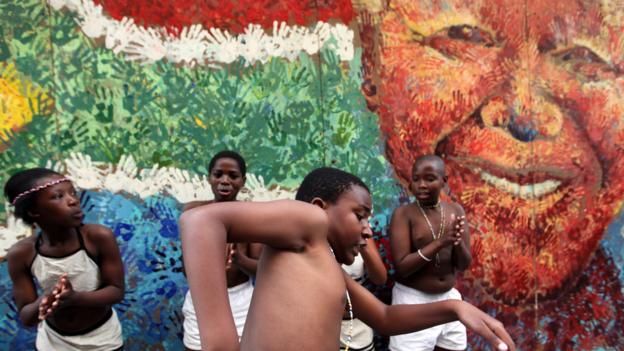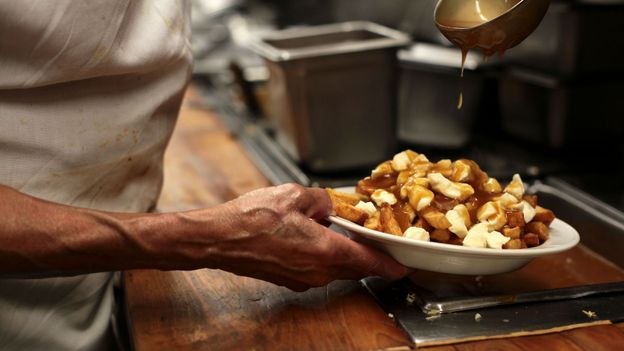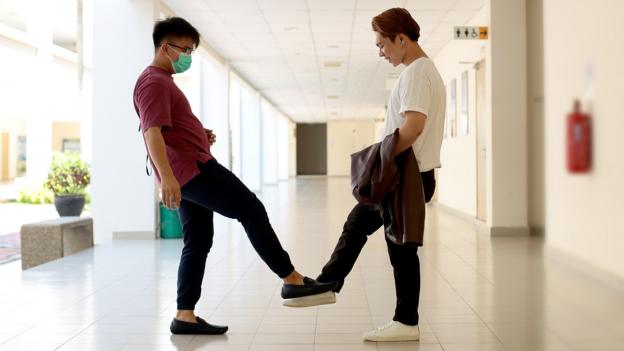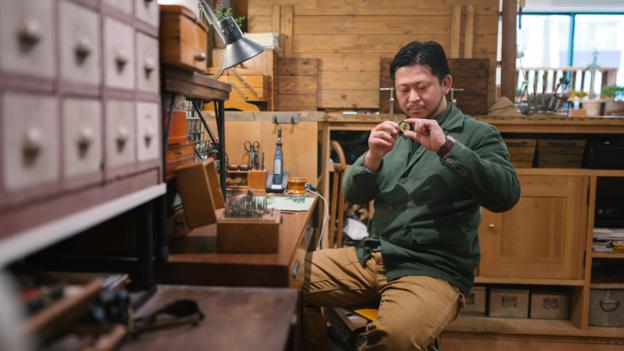Amna Al Hashemi doesn’t like being referred to as the first female Emirati “chef patron”, a title bestowed on her by Dubai’s culinary community in recognition of her being the UAE’s first female chef to open her own restaurant.
She says such a “pretentious” moniker alienates her from her guests and puts her on an unnecessary pedestal. The petite yet fiery mother of four prefers to focus on the healthy, humble dishes she serves in her two Mitts and Trays restaurants in Dubai. In a city that’s obsessed with glitz, glamour and fancy gastronomy, Al Hashemi wants her guests to feel at home in her restaurants.
But Al Hashemi loves a challenge, and while she blushes at the word “patron”, she’s proud of her achievements and the fact she’s become a role model for women across the UAE.
It might come as a surprise that women own 48% of small- to medium-size businesses across the country
In a country where women still require permission from a male guardian to get married, and where it’s still customary for women to request permission from men to work, it might come as a surprise that women own 48% of small- to medium-size businesses across the country. In fact, the country is liberalising in many ways, and women in the UAE enjoy some of the best working conditions among the more patriarchal countries in the Middle East. And, with free education for all UAE nationals, and more women graduating with university degrees (according to UAE’s The National, the percentage of women with a bachelor’s degree touches 43%), many women grow up wanting to own their own businesses and to be their own bosses.
You may also be interested in:
• The chef who rules France
• Is the world ready for this Palestinian dish?
• The world’s oldest-known recipes decoded
Al Hashemi is contributing to the surge of women workers in the culinary world by running cooking classes and workshops in her kitchen, and she delights in teaching people how to improve the way they eat and cook. Currently, she mentors 25 budding cooks and loves observing their progress. She not only encourages some to turn professional but she also helps women – and some men – wanting to improve their home cooking and healthy eating habits in general.
“I like seeing my mentees progress – even in the simplest of tasks like perfectly caramelising onions,” Al Hashemi told me. “It really brings me joy to know that I could contribute in changing a person’s approach to food and cooking habits. And, it makes them feel empowered in the kitchen – you have to support this.”
Al Hashemi was a fussy eater as a child and never considered herself a foodie until her sister-in-law introduced her to baking at the age of 22. Eventually, Al Hashemi began trying out her own recipes at home and gifting her treats to family and friends. A natural entrepreneur, she posted her creations on Instagram where her experience and creativity as a former social media researcher for a public policy thinktank came in handy.
She very quickly built a social following, and for two years, ran a solo, homegrown business, prepping, baking and delivering her baked goods – all while raising a family. Alongside the business, she enrolled to train as a pastry chef at Dubai’s International Centre for Culinary Arts.
“I loved it all, but I was tired and juggling everything was overwhelming,” Al Hashemi said. “But, my husband had a great idea and I trusted him.”
Yousef Al Rustamani encouraged his wife to open her own restaurant and hire a team of 30 employees to help her. In 2016, she was finally ready to launch her first cafe-cum-restaurant, Mitts and Trays, at the trendy City Walk esplanade.
Al Hashemi jumped in with all her passion and business pizzazz, serving up dishes she had fallen in love with on her travels around the world – risottos, curries and paellas, all made with fresh, local produce. She took the new business in her stride, enjoying the therapeutic art of cooking as her latest form of expression. She believes that one should never rush a dish. “You need to take time to feel the flavours and let them take shape,” she told me later that day as we cooked together.
As her confidence grew and her customers kept returning, Al Hashemi went back to her roots and began offering more traditional Emirati dishes on her menu. As well as the staple breakfast balaleet (an omelette served over sweetened vermicelli) and ouzi (a meat and rice dish) served in a pastry pouch, she also began experimenting with her menu, adding Emirati twists to her casual dining and thus creating her own fusion foods. Take her “thareed lasagne” for example, where Al Hashemi swaps the customary meat ragu for a traditional Emirati lamb stew and the pasta sheets for a local soft regag bread.
Such dishes are unique finds in a city that tends to revere international chefs and flavours and luxurious restaurants over classic Emirati cuisine. But, Al Hashemi is eager to showcase such dishes. She wears with pride her crisp chef whites decorated with the Emirati flag as she encourages people to explore her culture through her food.
I am very proud of Emirati cuisine and I love serving it to my customers and family
“I am very proud of Emirati cuisine and I love serving it to my customers and family,” she said. “It’s warm, comforting, unique and has a story behind it. That’s why Emirati food should be out there.”
It was no surprise then that my city adventure with Al Hashemi would take me to places that represent what she loves and a food culture she feels is too often overlooked. As she does in her cooking classes, she offered to teach me how to cook one of her favourite traditional dishes she often enjoys with her family – majboos, a delicate fish dish served with spices, herbs and rice. The word “majboos” comes from the Arabic word “makboos”, which means “pressed” and describes the method of cooking this dish in a hot skillet.
But before we could cook, we had to gather all the ingredients.
We met in the traditional, aromatic spice souk where Al Hashemi’s playful, cheeky spirit was in full flare as she taught me how to barter Emirati-style. We needed a range of herbs and spices, and while Al Hashemi was there for the mixed fish spice and the loomi (sun-dried lime), I had to haggle for the saffron on my own. I strategically checked out a few stalls and managed to get a handful of saffron threads for 20 dirhams, just more than £4 – a bargain, Al Hashemi later told me.
The next ingredient I needed for my cooking lesson involved a trip with two of her triplet brothers, Omar and Yahya, and two of their friends, who had skived off a class to join us. The group took me fishing far across the Gulf waters, and after a few false starts, they were delighted when I hauled in a large barracuda.
From the sea to the desert, my next ingredient challenge led me to a dusty, golden camel farm on the outskirts of the city. I was on the hunt for some fresh camel milk for the saffron infused ice-cream we were going to make for Al Hashemi’s family, who were joining us later that night for dinner.
My adventurous day came to an end in Al Hashem’s newly opened, second Mitts and Trays restaurant on the new Bluewater Island by the Dubai marina. As someone who loves to eat but lacks confidence in the kitchen, I was both excited and nervous to step into Al Hashemi’s workspace. But her tender teaching approach and her motherly spirit quickly soon put me at ease.
We seasoned the fish with spices and the loomi and created perhaps the fluffiest rice I’d ever tasted, which was washed quickly – not drained – and had a little olive oil added to it. While we let the fish and spices stew in a large pot on the cooktop, Al Hashemi showed me her favourite machine: the ice-cream maker for creating our dessert. The camel milk and saffron ice-cream with pistachio shavings was my favourite and perhaps the piece de resistance of the meal. It was creamy, sweet and had an earthy taste that excited my taste buds.
To join us in celebrating the evening, Al Hashemi’s husband, children and extended family all came to sample the delights we made. My time with them was a wonderful introduction to Emirati food and culture – and I saw an unexpected side of Dubai that I was privileged to explore. Far from the flashy experiences some travellers seek out in this city of multiple identities, I found beauty and joy in far simpler things.
Recipe for Emarati majboos
Ingredients:
• 2kg fish (any meaty white fish)
• 1 lemon, juiced
• salt (for seasoning)
• 1 tsp mixed fish spices
• 1 tbsp ghee or olive oil (for frying)
• 4 large onions, finely diced
• 1 garlic head, grated
• 3-4 whole green chilis
• 2 green bell peppers, deseeded and quartered
• 3-4 loomi, pierced
• 1 tsp turmeric powder
• 1 tsp cumin powder
• 1 tsp black pepper
• 1 tsp salt
• 1 tbsp tomato paste
• 4 tomatoes, finely chopped
• 1 bunch dill leaves, finely chopped
• 1 bunch coriander leaves, finely chopped
• 5 cups basmati rice, rinsed well
Directions:
• Marinate the fish in salt and lemon juice for 5 minutes then wash and dry.
• Sprinkle turmeric, mixed fish spices and more salt on the fish on both sides (patting down to stick the spices to the fish).
• Fry the spiced fish until golden brown then remove and place it on a tray lined with paper towels. Set aside.
• In a large pot, sweat the onions (adding a tbsp of water every time the bottom of the pot starts to brown) until they are soft and golden brown.
• Add in the ghee or olive oil, garlic, chilis, green bell peppers and loomi, and stir for 3-4 mins or until the garlic is aromatic and soft.
• Add in the cumin powder, turmeric, black pepper and additional tsp salt and stir until fully combined.
• Mix in the tomato paste and cook for 2 mins then add the tomatoes, dill and coriander leaves.
• Cook until the tomatoes are wilted and the mixture looks like a thick paste (adding olive oil if looking too dry)
• Add the fried fish and pour in some boiling water just until the fish is covered.
• When the water boils again, add in the rice then taste the water for the right balance of salt.
• Cover and cook on medium low heat until the rice is fully cooked.
• Serve hot.
Join more than three million BBC Travel fans by liking us on Facebook, or follow us on Twitter and Instagram.
If you liked this story, sign up for the weekly bbc.com features newsletter called “The Essential List”. A handpicked selection of stories from BBC Future, Culture, Worklife and Travel, delivered to your inbox every Friday.

